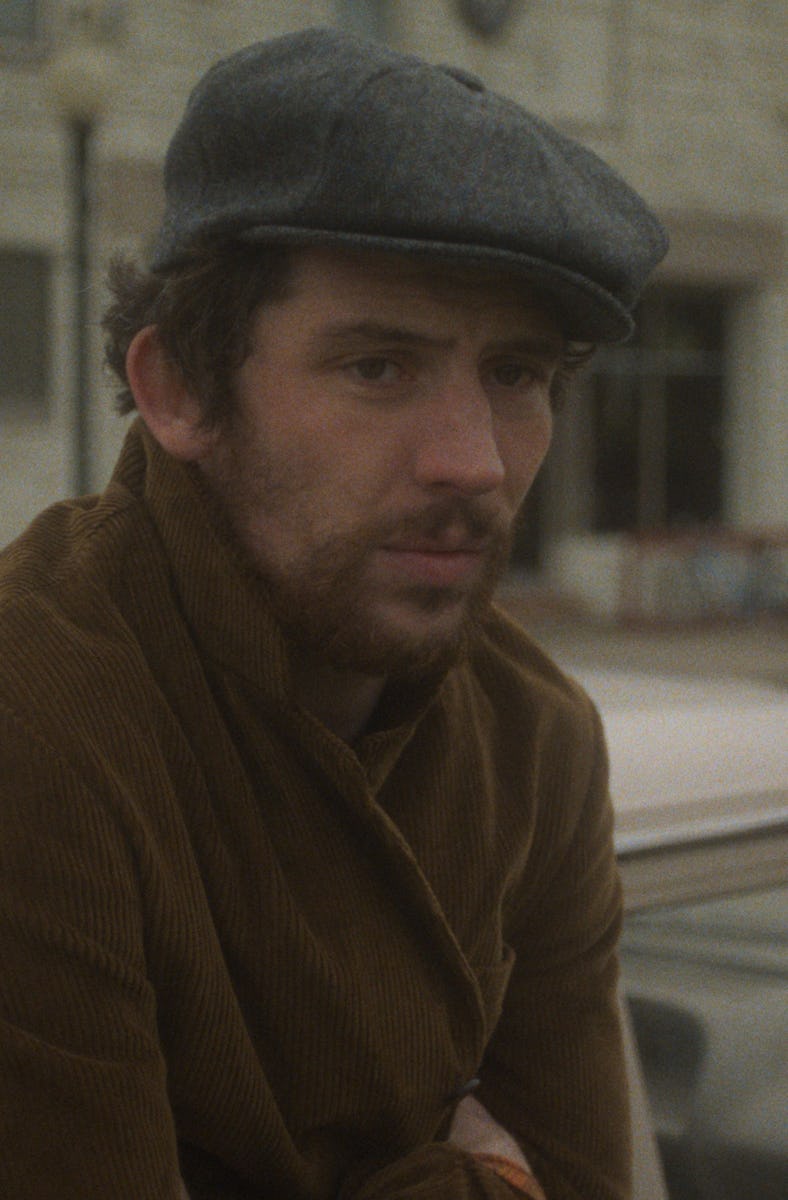The Mastermind Redefines the Heist Movie
Kelly Reichardt channels the shaggy ‘70s heist thriller in her captivating latest.

Leave it to Kelly Reichardt, writer-director of such sleepy, slow-burning dramas as First Cow and Wendy and Lucy, to make the anti-heist movie. The Mastermind, her shaggy, ‘70s-set film starring Josh O’Connor as the orchestrator of an art museum robbery gone wrong, channels the kind of shaggy ‘70s capers that defined the genre — without any of the sleek, satisfying results of a heist flick. Instead, The Mastermind feels more true to the sinuous core of ‘70s neo-noir like Robert Altman’s The Long Goodbye: meandering, pensive, and melancholy.
The first thing you need to know about The Mastermind is that its title is ironic. Josh O’Connor’s James Blaine Mooney may, in fact, be uniquely terrible at being a criminal. A suburban dad and an architect between jobs, he spends his time with his wife (Alana Haim) and two boys wandering the local art museum, where he swipes little trinkets and observes the sleeping security guards. Unbeknownst to his family, he’s casing the museum for a heist he’s planning with a few of his criminal associates — Guy Hickey (Eli Gelb) and Larry Duffy (Cole Doman) — whom he soon assembles to steal four Dove paintings, which James then plans to sell to his regular fence. But naturally, as is the case with many a heist movie, things quickly fall apart. One of the two guys bails, and James is forced to replace him with Ronnie Gibson (Javion Allen), a seasoned criminal and a “wild card.”
Things only go downhill from there, as James is forced to step in as the getaway driver for the scheme, while the two other robbers rush through the sleepy museum and pack away the four paintings — all in broad daylight. That’s the innovation of James’ plan: that the sleepy Massachusetts museum is so ill-guarded that no one would notice a couple of robbers just walking out of the museum with paintings in tow. But when Ronnie pulls a gun on a few schoolgirls who found themselves in the wrong place at the wrong time, James’ carefully laid plans immediately go to waste. Soon, he finds himself evading the authorities and even a few other low-level criminals hoping to take his loot for themselves.
While the heist itself is actually rather gripping— with the first half of the film thrumming with an electricity rarely seen in Reichardt’s films — James’ life on the run isn’t the Hollywood thriller it sounds like on paper. Rather, the second half turns into a subdued drifter saga, as James roams through the Midwest, taking refuge with old college friends and wandering ramshackle small-town streets crowded by Vietnam War protestors.
Reichardt is clearly more comfortable in the sleepy second half of the film and its vagabond charms, but the director, who has become a famous representative of slow cinema, also seems to relish taking a zippier approach in the first half. Though it is definitely more slow-burning than conventional heist films, the first act practically skips along, powered by Rob Mazurek’s jazzy score and a handful of satisfying last-minute twists. The heist was inspired by the 1972 robbery of the Worcester Art Museum in Massachusetts, and while Reichardt maintains a certain level of fidelity to the real-life case (the paintings were all recovered), it still takes some fun, twisty creative liberties with how it all plays out. But all of it hinges, of course, on Josh O’Connor’s magnetic leading performance.
Josh O’Connor harnesses his particular brand of pathetic magnetism in The Mastermind.
O’Connor has perfected the shaggy, charismatic wise-guy role that he first started to inhabit in last year’s terrific crime drama La chimera, and he dials up the grubby allure in a way that feels like a deliberate homage to Elliott Gould’s detective in The Long Goodbye. But unlike Gould’s ultimately noble Detective Philip Marlowe, O’Connor’s James is a shamelessly self-serving, bored rich guy, a loser at heart who will inevitably get what’s coming to him. Reichardt and O’Connor both keep the audience at an arm’s distance from James and his internal struggle — showing him butting against his upper-middle-class home life and taking advantage of his trusting mother, Sarah (Hope Davis), while maintaining an icy relationship with his judge father, William (Bill Camp).
But as James starts to deal with the consequences of his actions, O’Connor plays the pathetic kicked puppy attitude perfectly, maintaining his unkempt magnetism (while looking increasingly dirty). He’s easy to root for, but easier to hate, especially as his journey takes him to the home of his adoring college friend Fred (a delightfully adorable John Magaro) and the more resentful Maude (Gaby Hoffmann).
The Mastermind gestures at the cultural turning point of the time period — the film is set in 1970, as public opinion had turned against the Vietnam War — and the little slices of Americana that Reichardt shows us are intriguing, filling the background with radio snippets about the war, and staging a climactic protest that James finds himself caught up in. And while the film is not quite as interested in exploring this aspect as it could be, it adds to the film’s overall feeling of being transported right out of the ‘70s.
The Mastermind is a throwback, in the best possible way. It evokes the look and feel, and time and place, of a ‘70s caper, with a lead who seems like he stepped right out of the decade. And with Reichardt’s deliberate, slow-burning approach to a typically high-energy genre, it exposes the melancholic core of the ‘70s crime thriller. It redefines the heist film by Reichardt’s vision of an America that has since been lost to time.